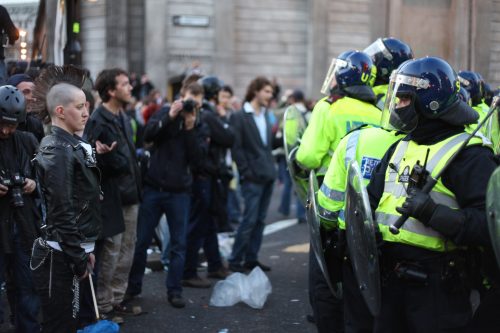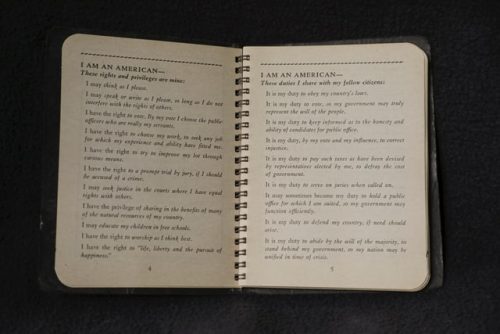“This pandemic is grueling. The measures to control it impinge on our quality of life, hurt our freedoms, undermine our rights. But to demand rights and deny responsibilities isn’t rebellion, it’s adolescence.”
Jeeves Wijesuriya
One of the things I’ve been thinking about a lot during the pandemic and in response to the conspiracy theories and rampant idiocy rolling around the world, is how the old punkers are behaving. I’ve been a punk since I was eleven, and I’ve often expressed my belief that “Punk is not a fashion statement”. You don’t have to have a mohawk or a leather jacket to be punk. In my opinion, you don’t even have to like punk music (though I very, very much do).
For me, punk is an ideology that centers on contextual decision making and solidarity. It does so, however, as the antithesis of exclusionary beliefs and fascism.

Contextual Decision Making
It’s a folly to make a decision because that’s the decision you’ve always made. A dangerous folly. Contextual Decision Making is all about not making that mistake, but rather ensuring that whenever you’re faced with a decision or an action, you consider the great many cognitive biases that might be influencing you.
In November 2020, I ran two workshops centered on Equity, Diversity and Inclusion (ED&I) for Greenpeace and a third about co-creating the future and using open principles. Part of the Virtual Tech Camp, my ED&I sessions with Greenpeace’s Sr. Global Project Manager for Diversity & Inclusion focused on Unconscious Bias and Understanding Privilege. As is usually the case whenever I’m working with groups of people, we designed a participatory agenda. We started with asking folks to record their thoughts about what “unconscious bias” and “privilege” mean. Understanding both is essential to Contextual Decision Making.
Unconscious Bias

Photo by Dorothea OLDANI on Unsplash
Our brains look at previous experiences and patterns to help us “shortcut” judgements. This is completely normal. If we truly considered, unbiasly, every angle, we’d spend far longer trying to decide which decision or action to take. We would have to gather and process far too much information. Unconscious Bias occurs when we take these shortcuts without considering a chain of logic associated with the shortcut. We listen to what our gut tells us, without considering the context of the actual situation, thereby allowing past experiences to influence our current behavior.
Privilege

Sometimes we don’t notice privileges because they’re so ingrained in our culture. We are confronted on a daily basis with cultural and social norms that may be related to a certain groups’ privilege. From whether or not you are left-handed to the color of your skin – there are small and gigantic things that construe our individual privilege in society.
Understanding and acknowledging privileges is key to understanding why and how we react and perceive our surroundings. In order to objectively reflect on our interactions we need to focus on the intersectionality of privilege. It is an essential framing that can help us understand how every privilege or marginalization exists in a different, but related, place.
Contextual Decision Making can be an exercise in empathetic response. A police officer makes the decision not to charge the starving man with thievery of bread because to do so would be to deny the responsibility of showing empathy towards the hungry. It can also further deepen wounds when the empathy is directed towards one group working to oppress others.
Solidarity

If you feel empathy because you’ve taken the time to observe your bias and the situation you find yourself in, solidarity becomes a natural way of reacting to the overt reality that we’re all connected. The Western ideals of individualism stand on faulty ground when you look at history and culture. Successful societies are those who have found a balance between individual and societal needs. Unfortunately, solidarity towards only those you share privilege with is a form of exclusion that is a detriment to the well-being of society. We’re seeing this form of solidarity, again, with the stark display of white privilege the seditionists who stormed the Capitol yesterday demonstrated.
If you demand rights for yourself, you have to demand those same rights for others. You have to take on the responsibility of collective action, and you yourself act in a way that benefits the collective. If you want credit, you have to give credit. If you want community, you have to be communal. If you want to be satiated, you have to allow others to be sated. If you want your vote to be respected, you have to respect the votes of others.
“to demand rights and deny responsibilities isn’t rebellion, it’s adolescence.”
I would go a step further and say that demanding rights and denying others in service only to yourself and those like you is fascist behavior as you are enunciating your autocratic control over those unlike yourself.